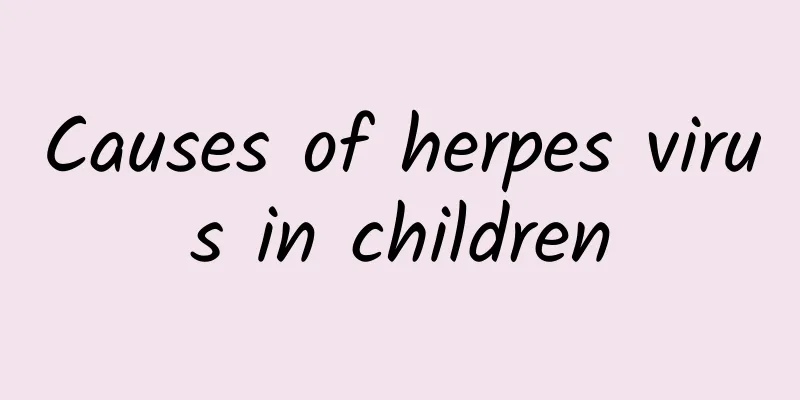What are the reasons for the failure of emergency contraceptive pills?

|
We all know that today's contraceptives are very safe and can be used with confidence. However, many young people nowadays often use contraceptives incorrectly or use them incorrectly, which may lead to contraceptive failure. Contraceptive failure mainly includes taking contraceptives at the wrong time. Taking them too long or too short may lead to unwanted pregnancy. You need to be especially careful in this regard. How to take emergency contraceptive pills to remedy contraceptive failure There are many young people who cannot insist on using condoms correctly, that is, they cannot use condoms for protection from the beginning to the end of sexual intercourse, so it is easy to cause condoms to slip or contraception failure. In addition, there are still some young people who rely on calculating the safe period for contraception, and when contraception fails, they have to have an artificial abortion. In case the condom slips off, in case the condom breaks, in case the safe period is calculated incorrectly, the remedy is to take emergency contraceptive pills immediately. For example, the emergency contraceptive pill that everyone is familiar with, Yuting, should be taken within three days after intercourse. The earlier it is taken, the better the contraceptive effect. But I want to emphasize that emergency contraceptive pills should not be used repeatedly or frequently as regular contraceptive pills. In addition, once you take emergency contraceptive pills, you cannot have unprotected sex during this menstrual cycle. The effectiveness of emergency contraceptive pills is only 70-85%, while the effectiveness of oral contraceptives we just talked about can reach 99%. From this comparison, we can know that emergency contraceptive pills should never be used to replace regular oral contraceptives. Can I keep the baby I conceived if the emergency contraceptive pills failed? Since 1998, emergency contraceptive pills (Yuting, etc.) have become over-the-counter drugs in China. Many young people often go to pharmacies to buy pills for self-administration after having unprotected sex, believing that emergency contraceptive pills are simple and easy to use and that conventional contraceptive methods are no longer needed. However, no matter which type of emergency contraceptive pills are used, their contraceptive effectiveness is much lower than conventional contraceptive methods, which means that the possibility of pregnancy after taking the medicine is significantly higher than conventional methods. In the outpatient clinic, we often meet such "kids" who come to consult with us with worried faces, asking what to do if they get pregnant even after taking emergency contraceptive pills: if they want to have an abortion, they are worried about infertility in the future; if they don't have an abortion, they are worried that the emergency contraceptive pills will harm the child. Detailed explanation: Taking emergency contraceptive pills during the menstrual cycle will not have much effect on the fetus Taking emergency contraceptive pills during the menstrual cycle will not have much impact on the fetus, so you can consider it, but you should do a good job of eugenics screening during pregnancy. This emergency contraceptive containing levonorgestrel was only launched in my country in 1998. It has been so short a time that no standardized epidemiological studies have provided relevant evidence to prove whether it has teratogenic effects. But theoretically, taking progesterone hormones during pregnancy may cause the fetus's reproductive system to develop poorly, which may lead to fetal sexual deformities. If emergency contraceptive pills are taken during the menstrual cycle, there will be no obvious effect on the fetus and you can keep the child without having to have an artificial abortion. However, if it is taken 4 weeks after the last menstrual period, there is a certain possibility of causing fetal hermaphroditism. Because within 4 weeks of pregnancy, the embryo is mainly in the early stages of cell and tissue differentiation, while the reproductive system develops around 8 weeks of pregnancy. Therefore, if the emergency contraceptive pill is taken 4 weeks after the last menstrual period, from the perspective of eugenics, young women in good health can choose not to take it for the time being. Women who are older and have difficulty getting pregnant may also consider having this child. But you must do a good job of prenatal care and eugenics screening. |
<<: What is the reason for hard lumps and pus in the ears?
>>: Are birth control pills effective for weight loss?
Recommend
What to eat to replenish blood after menstruation
Women’s menstrual periods are regular in each cyc...
What to do if there is a small lump in the anus during defecation
When defecating, if there is a small ball of fles...
Diet and health care for viral encephalitis
There are many types of diseases, and the choice ...
Acute salpingitis
When acute salpingitis occurs, the lesions of the...
Why do babies fart a lot? Maybe it's due to these four reasons
It is very common for babies to fart, but if the ...
What to do if you have acid reflux after eating
Many people will have this symptom, that is, afte...
How to treat pustular acne
Everyone loves beauty, especially women, for whom...
What to do if there is a red pit after mole removal
Moles growing on the surface of the skin generall...
Can I get vaccinated for jaundice?
It is very common for newborns to have jaundice b...
How to use hemorrhoid cream
Hemorrhoids are quite common in daily life, so do...
Can I drink soy milk while taking Chinese medicine? Did you know that soy milk can prevent high blood pressure?
Many elderly people like to drink Chinese medicin...
Don’t panic if you get heatstroke in summer! Several first aid methods you must know
Once a person is found or suspected of suffering ...
What is a parotid gland tumor? How are parotid gland tumors treated?
Common diseases of the parotid gland include tumo...
What anti-inflammatory drugs should I take for bleeding during intercourse
Sexual life is an important part of our normal li...
What are the traditional Chinese medicines for treating condyloma acuminatum?
The treatment of genital warts has always been on...









